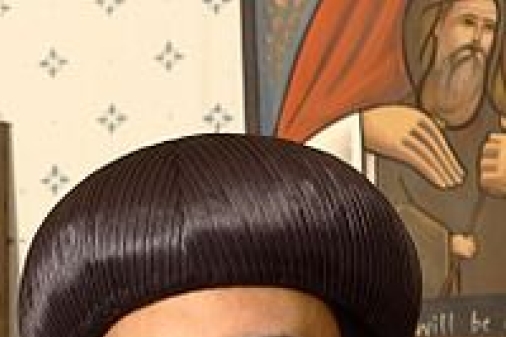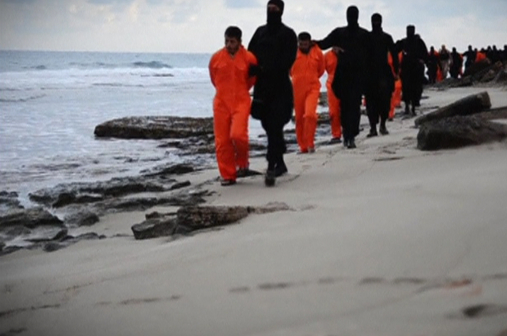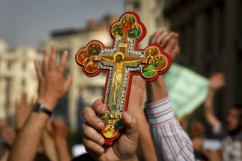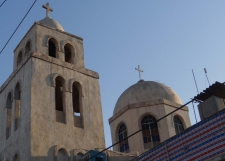
On 15 February 2015, a video was released depicting masked ISIS militants dressed in black marching 21 Coptic Christians in orange jumpsuits along a beach in Libya.
The captives were forced to kneel on the seafront, each with a jihadist behind standing behind them.
And then they were beheaded.
It remains one of the most shocking sights of ISIS' growing catalogue of atrocities. However a year on, the General Bishop of the Coptic Church told Christian Today a message of forgiveness and strength had trumped the video's attempt to instil fear and hatred.
"The same tool used to try and magnify violence and division actually became a platform for everyone to see the strength of their faith," said Bishop Angaelos.
On receiving confirmation, Angaelos sent out a tweet to officially announce the deaths with the hashtag, "Father forgive".
"That hashtag has really set the tone for how Copts have responded," Angaelos told Christian Today.
"From own community I haven't heard a single message of vengeance or anger used."
"An even stronger and more inconceivable message of forgiveness came from their families and communities," said Angaelos in a statement to commemorate the anniversary.
"They rejected the temptation to become bitter, angry and vengeful, and inspired the world with their gracious and courageous sentiment. Speaking proudly of the resilience of their fathers, brothers, and sons, who had captured the attention of the whole world, they also uttered their forgiveness for those who had so brutally and needlessly taken their lives, and who sought to rob them of their dignity."
Angaelos was speaking shortly after an announcement of an upcoming ceasefire in Syria which he said was welcome.
"We don't want any more people dying, whoever they are," he told Christian Today, reiterating his message of forgiveness.

Military action has had its place in Syria, he said but "it is not going to be a long term solution".
"The more we place hope on military action to solve the problem, the longer we will be drawn into to conflict."
However he said he wished western governments had not waited as long as they did before standing up for minorities in the Middle East.
"What we are now seeing played out in the Middle East has not happened overnight, but has come after generations of the alienation, marginalisation and persecution of Christians and minority groups throughout the region," he said.
"Boundaries are challenged and pushed and when there is no repercussion they are pushed further.

"The phenomenon starts with people being denied daily justice and equality in society, they are then deemed irrelevant and inconsistent, in the eyes of some, with what the region should be, and finally they are persecuted, displaced and sometimes even killed."
Instead, he said "we should not have waited until western intervention was necessary" before we acted.
"If we had held state actors to account and demonstrated that God-given human rights should not be violated I think there would have been a great deal less violence," he told Christian Today.















